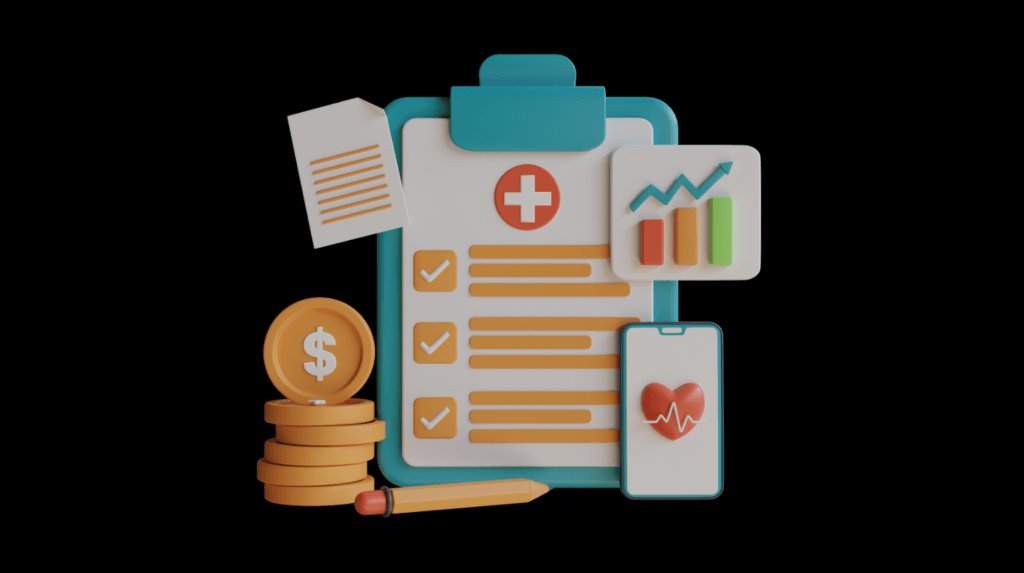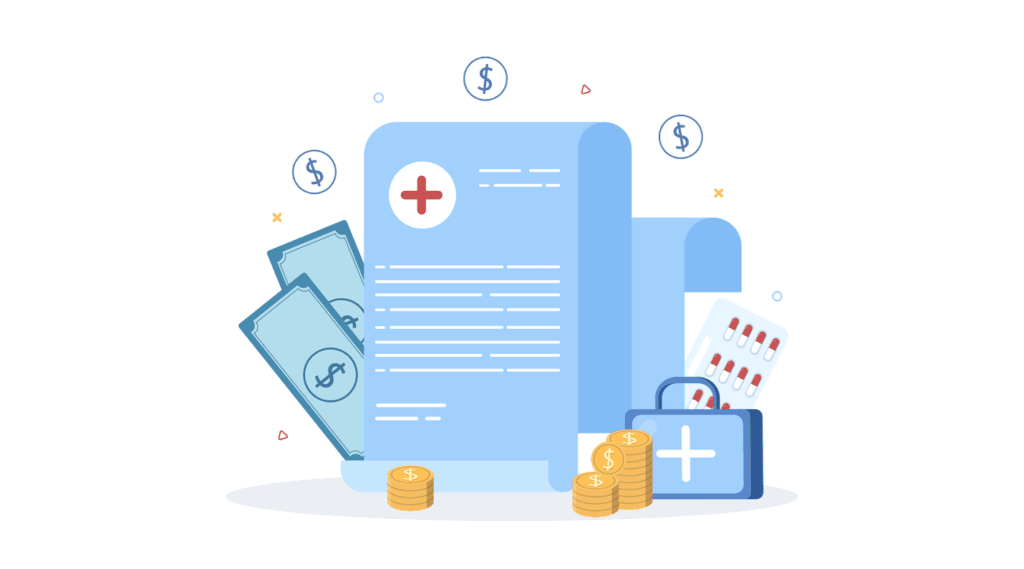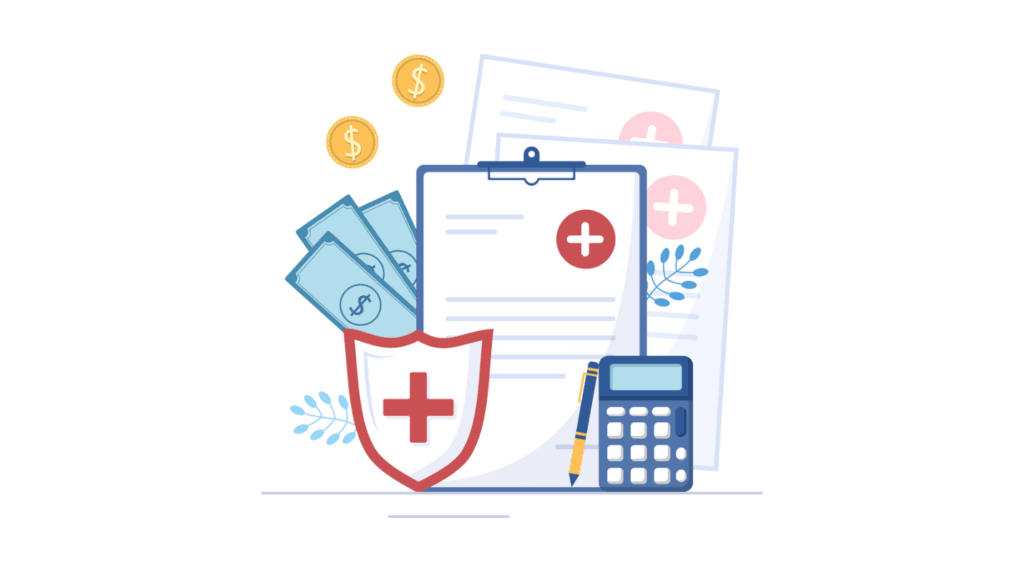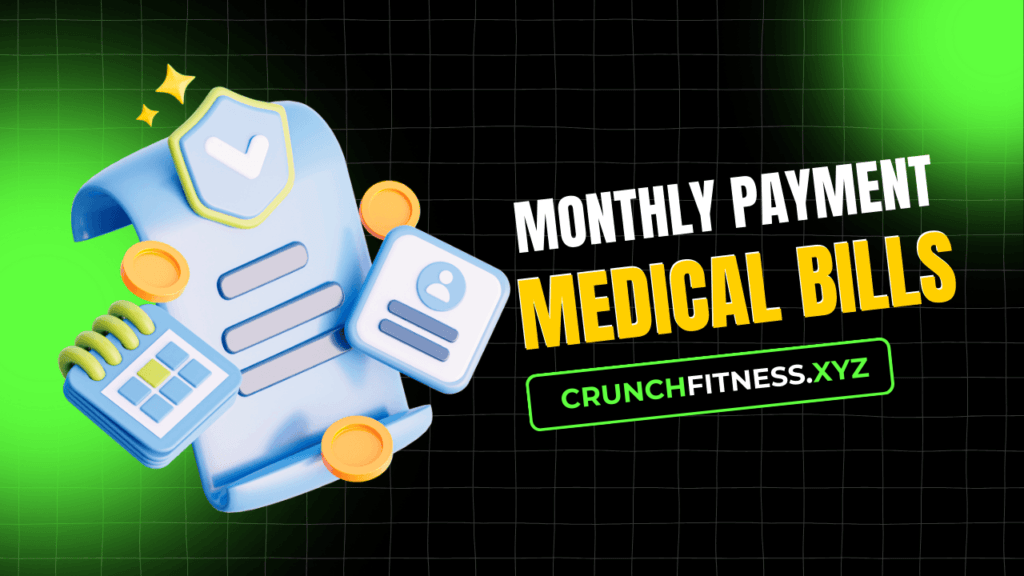When you’re faced with medical bills, figuring out how to pay them can be stressful. Understanding your Minimum Monthly Payment On Medical Bills is important to keep your finances in check. Many people find themselves struggling to pay high medical costs, especially when unexpected health issues arise.
This guide will explain what the Minimum Payment On Medical Bills is, how it works, and how you can manage your bills effectively.
Understanding Minimum Monthly Payment On Medical Bills
Medical bills can seem overwhelming, especially when you’re not sure what the minimum monthly payment is. The Minimum Payment On Medical Bills is the smallest amount you need to pay each month to stay on track with your debt. This payment is usually a fraction of the total amount due and can be set by the hospital, clinic, or insurance provider handling your care.

Medical bills can quickly pile up, but knowing your minimum payment options and understanding how medical billing works can ease the burden. Whether it’s for regular health checkups or emergency services, finding a manageable payment plan is essential to maintaining your health and financial well-being. Read on to learn more about Medical Billing and the Minimum Monthly Payment On Medical Bills.
How Medical Billing Works
When you visit a healthcare provider, you’ll likely receive a bill. This bill may include charges for doctor visits, hospital stays, medications, and lab tests. After insurance, if you have it, covers its portion, you’re left with the remaining balance. This balance is what becomes your medical bill. The minimum payment is the least amount you can pay monthly without falling behind.
What Affects The Minimum Monthly Payment?
The amount of your minimum monthly payment is determined by several factors:
Effects
Can You Negotiate The Minimum Payment On Medical Bills?
Yes, you can negotiate your minimum monthly payment with healthcare providers or the billing department. If you are facing financial difficulty, contact them directly. Many providers are willing to work with you to set up a more affordable payment plan.
Managing Your Medical Bills Effectively
Managing your medical bills is essential for staying financially healthy. Here are a few strategies to help you stay on top of payments.

1. Review Your Bill Carefully
Always take the time to carefully review your medical billing statement. It’s important to check each charge and verify that everything is accurate. Mistakes in billing happen more often than you might think, and errors could lead to overpayment. If you spot any discrepancies or charges you don’t understand, don’t hesitate to contact the provider to resolve the issue. Double-checking your bill before paying can save you money and ensure you’re only paying for what you owe.
2. Contact Your Provider About Payment Plans
If you find yourself unable to pay the full amount of your medical bills, reach out to your healthcare provider and inquire about payment plans. Many providers offer monthly installment plans that break down the total amount into smaller, more manageable payments. These plans allow you to pay off your balance over time with lower minimum monthly payments. By asking for a payment plan, you can avoid the stress of paying everything upfront and ensure your bills are paid on time.
3. Consider Financial Assistance Programs
Many hospitals and healthcare providers offer financial assistance programs to help patients who are struggling with medical bills. These programs may reduce the total amount you owe or help you set up a more affordable minimum payment. To qualify, you usually need to provide proof of income or financial hardship. If you’re eligible, these programs can significantly ease the burden of paying off your bills, so it’s worth exploring your options and applying for assistance.
4. Set Up Automatic Payments
Setting up automatic payments is a great way to manage your minimum payment on medical bills. Once you know the amount you need to pay each month, you can arrange for automatic deductions from your bank account. This ensures you never miss a payment and helps you avoid late fees and penalties. Automatic payments also make budgeting easier and allow you to focus on other financial responsibilities without worrying about missed deadlines for your medical bills.
5. Keep Track of Payments
It’s important to keep a detailed record of all payments you make toward your medical bills. By tracking each payment, you can stay on top of your debt and monitor your progress. Having a clear record helps you avoid confusion or disputes with the provider regarding whether a payment has been made. You can also refer to this record if any issues arise with billing, ensuring that you have proof of payment and can resolve any discrepancies more easily.
Tips for Lowering Your Medical Bills

1. Shop Around For Better Rates
Before undergoing a medical procedure or treatment, it’s important to shop around for the best rates. Healthcare providers may offer different prices for similar services, and some hospitals or clinics are known for providing affordable options. By comparing prices and asking about payment plans, you can significantly reduce your overall medical expenses. Don’t be afraid to ask questions and seek the best value for your treatment needs.
2. Use Preventive Care
One of the best ways to reduce your medical bills is by using preventive care. By getting regular check-ups and screenings, you can catch health issues early and prevent more expensive treatments in the future. A healthy lifestyle that includes proper nutrition, exercise, and regular visits to your healthcare provider can help keep medical costs down. Prevention is key to avoiding costly medical procedures and maintaining long-term health.
3. Explore Health Insurance Options
If you’re not already covered by health insurance, it’s worth exploring the different options available to you. Health insurance can help reduce the amount you pay out-of-pocket for medical bills. There are various plans to choose from, depending on your needs and budget. By finding the right coverage, you can minimize your medical expenses and avoid being burdened with high out-of-pocket costs when health issues arise.
4. Ask for Discounts
When paying medical bills, always inquire about discounts that might be available. Many healthcare providers offer discounts for patients who pay their bills in full or for those who are paying out-of-pocket. If you’re able to make a lump-sum payment, you might be eligible for a reduced rate. It’s worth asking about any available discounts, as they can significantly lower your medical debt and help make payments more manageable.
5. Consolidate Your Bills
If you’re juggling multiple medical bills, consider consolidating them into one manageable payment plan. Many providers allow patients to combine their bills into a single loan or payment arrangement, which can reduce the hassle of dealing with different deadlines and amounts. Consolidating your bills can help simplify your finances and ease stress. It also allows you to focus on making one payment, which can be more manageable than multiple, smaller payments.
Conclusion
In conclusion, understanding your minimum monthly payment on medical bills is essential to avoid late fees, collections, and other financial issues. By reviewing your bills, contacting providers for payment options, and staying on top of your payments, you can manage your medical billing more effectively. Remember, it’s always possible to negotiate lower payments or seek financial assistance if you’re facing hardship. Keep track of your health and finances, and don’t hesitate to ask for help when needed.
Common Questions About Minimum Monthly Payment On Medical Bills
What Is The Minimum Monthly Payment On Medical Bills?
The minimum monthly payment is the smallest amount you can pay each month to avoid falling behind on your medical bill. This payment is usually set by the healthcare provider and is typically a small percentage of the total amount owed.
Can The Minimum Payment On Medical Bills Be Reduced?
Yes, you can negotiate your minimum monthly payment with the healthcare provider. If you’re struggling financially, they may offer a lower payment or an extended payment plan.
How Long Do You Have To Pay Off Medical Bills?
The length of time you have to pay off your medical bills depends on the provider and the terms of the payment plan. Some plans allow you to pay over several months or even years, while others may require quicker repayment.
What Happens If I Don’t Make My Minimum Payment On Medical Bills?
If you miss your minimum payment or fail to make a payment for an extended period, your account may be sent to collections. This can negatively affect your credit score. It’s important to stay current on your payments or make arrangements with your provider if you’re unable to pay.

